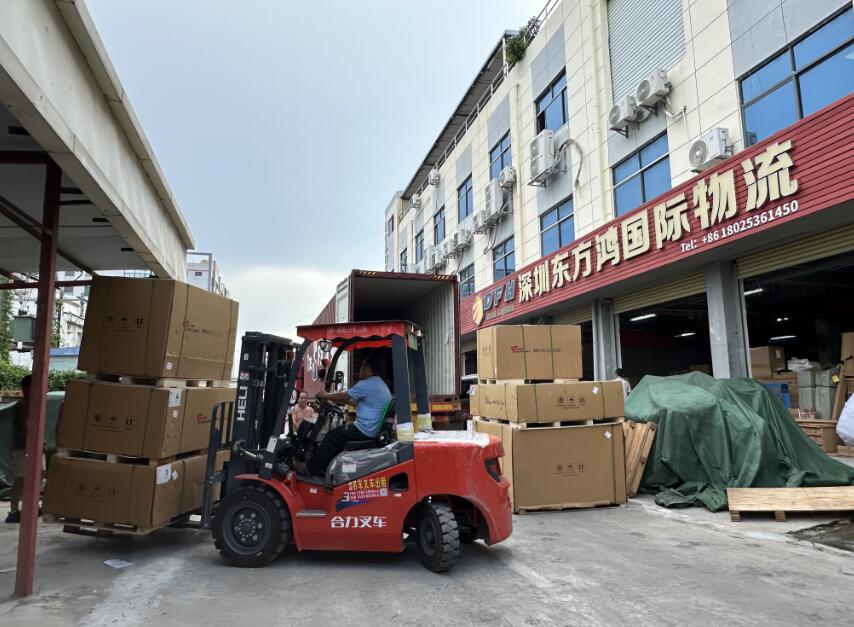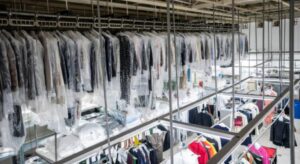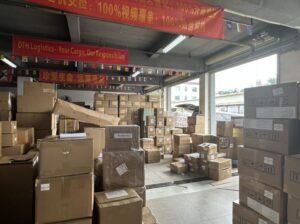If you’re importing products in bulk from overseas, choosing a reliable ocean freight shipping provider can make or break your supply chain. I’m Penny, co-founder of DFH Logistics. Over the past 12+ years, I’ve helped thousands of clients—from Amazon sellers and wholesalers to retailers and manufacturers—ship containers and LCL cargo from China to destinations worldwide.
In this guide, I’ll walk you through everything you need to know about selecting the right ocean freight partner, so you can avoid costly mistakes, delays, or communication breakdowns.
What does an ocean freight shipping provider actually do?
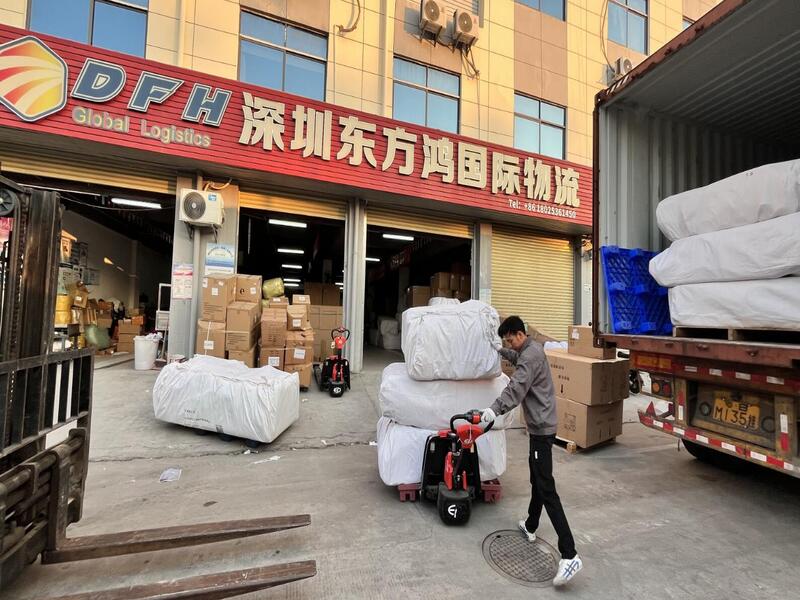
An ocean freight provider handles the international transportation of goods by sea. This includes booking cargo space, issuing necessary documents, managing customs processes, and coordinating container movement from the port of origin to the port of destination.
Some freight providers only offer port-to-port services, while others, like DFH Logistics, provide end-to-end solutions—covering factory pickup, consolidation, export declaration, ocean freight, import customs clearance, and final delivery.
To understand how ocean freight compares to other methods, check out our guide on sea freight services from China.
Why is choosing the right provider so important?
A reliable shipping partner ensures:
- Predictable delivery times
- Transparent pricing with no hidden charges
- Fewer delays and customs issues
- Smooth communication with suppliers and local customs
- Proper documentation and compliance with international trade regulations
Unreliable providers, on the other hand, can lead to missed deadlines, product damage, or even cargo loss.
What factors should I consider when choosing an ocean freight provider?
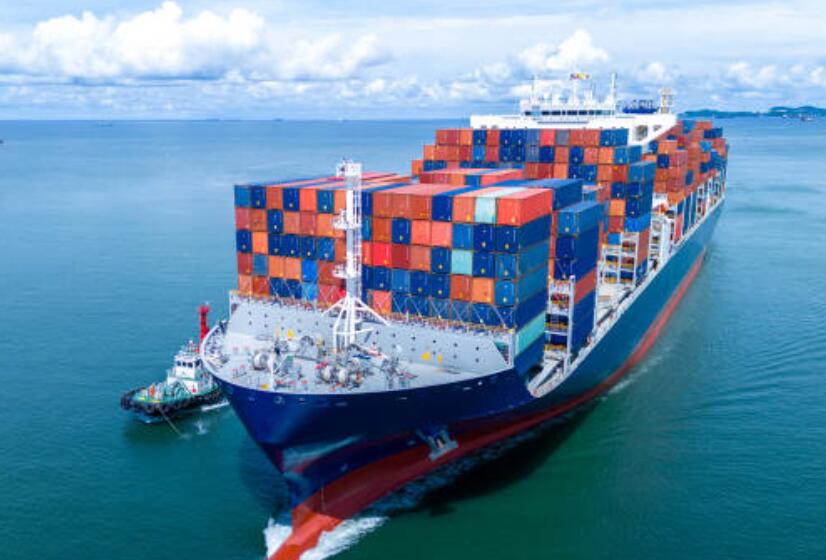
Here are the most critical factors to evaluate:
- Experience & Track Record: Look for a company with at least 5–10 years in international ocean shipping. DFH Logistics, for example, has been in operation since 2013.
- Licenses and Certifications: A legitimate freight forwarder should be registered and licensed for international shipping.
- Global Network: A strong partner network at both origin and destination ensures your cargo is handled smoothly at every step.
- Customer Service: You should have access to real people who understand your concerns and can offer tailored advice—not just automated systems.
- Service Scope: Do they offer full-service (door-to-door, DDP)? Can they handle both FCL and LCL shipments?
- Transparent Quoting: Make sure you’re receiving a full breakdown of charges before booking.
Looking for expert tips on evaluating logistics companies? Explore our detailed guide on how to choose the right freight forwarder in China.
How do I verify if a freight provider is trustworthy?
To verify reliability:
- Request References or Case Studies: Ask for examples of customers they’ve helped in similar situations.
- Check Online Reviews: Look at independent reviews on platforms like Trustpilot or Google.
- Test Their Response Time: See how fast and thoroughly they reply to inquiries.
- Ask Industry Questions: A knowledgeable provider will explain their process clearly and transparently.
- Inspect Their Website and Documentation: Reliable providers have professionally maintained websites with detailed service descriptions and clear contact methods.
Should I choose a freight forwarder or a shipping line directly?
Unless you’re a large enterprise with high volumes and your own logistics department, working with a freight forwarder is usually better. Here’s why:
- Better flexibility: Forwarders can compare different carriers to find you the best route and price.
- More services: They can handle paperwork, customs, warehousing, labeling, repacking, and last-mile delivery.
- Consolidation: They allow you to combine cargo from multiple suppliers into one shipment.
Shipping lines don’t usually offer these services—they just move containers port to port.
What’s the difference between FCL and LCL, and how does it affect my choice?
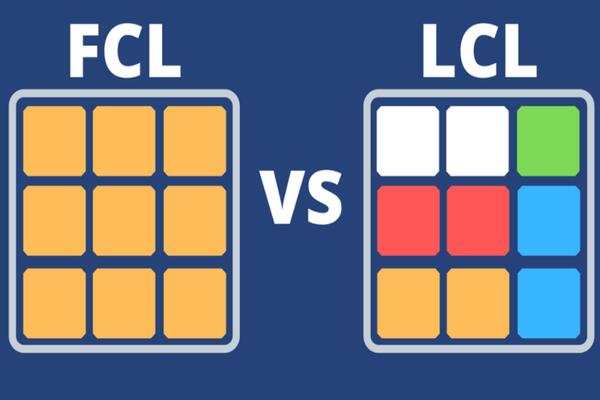
When choosing an ocean freight provider, one of the first decisions you’ll need to make is whether to ship via FCL (Full Container Load) or LCL (Less than Container Load). Your choice will directly impact your shipping cost, transit time, and cargo safety.
FCL (Full Container Load):
- You rent and use the entire container, regardless of whether you fill it completely.
- Ideal for shipments above 15 CBM or when cargo is sensitive, high-value, or requires privacy.
- Offers better cargo security, fewer handling points, and shorter transit time.
LCL (Less than Container Load):
- Your cargo shares space with goods from other shippers in the same container.
- Suitable for shipments between 1 CBM and 15 CBM that don’t require a full container.
- More cost-effective for small volumes, but slightly longer transit times due to consolidation and deconsolidation processes.
Choosing Between FCL and LCL:
- If your shipment is large or you want better control and fewer touchpoints, go with FCL.
- If you have smaller volumes and want to save money, LCL is a practical choice.
A reliable freight forwarder should help you analyze your cargo size, urgency, and budget to recommend the most suitable option.
How can I compare quotes from different freight providers?
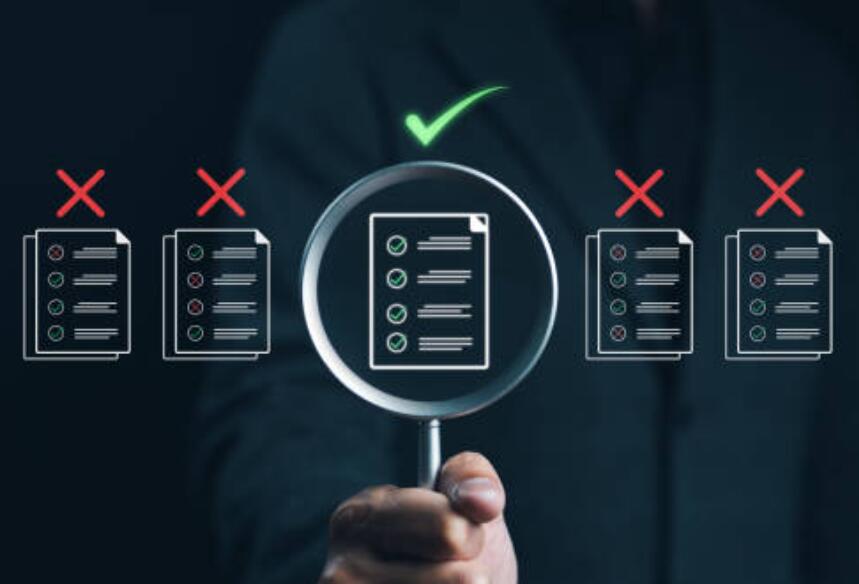
Comparing quotes from different ocean freight providers isn’t just about picking the lowest number—it’s about understanding what’s included, what’s missing, and how each provider handles your shipment from start to finish.
Here’s how to compare quotes effectively:
1. Clarify the Service Scope
- Is it port-to-port or door-to-door?
- Does it include pickup, customs clearance, or final delivery?
- Are duties and taxes included (DDP), or are they excluded (DAP/FOB)?
Always ensure you’re comparing similar service levels. A cheaper quote might skip essential services you’ll end up paying for separately.
2. Request a Cost Breakdown
- Freight cost
- Origin charges (pickup, warehouse, export declaration)
- Destination charges (customs clearance, delivery, unloading)
- Documentation fees
- Insurance (optional but recommended)
A transparent freight forwarder will show these details clearly in the quote.
3. Check Transit Time and Route
- Compare the estimated delivery time.
- Ask about routing: some low-cost services use slower, indirect routes with multiple transshipments, increasing risk and delays.
4. Ask About Hidden Fees
- Are there any port congestion surcharges, fuel adjustments, or warehouse handling fees that may apply later?
- A professional provider will disclose all potential costs upfront.
5. Review Their Support and Communication
- Can you talk to a real person who understands your cargo and your timeline?
- Will they offer tracking, updates, and proactive problem-solving?
At DFH Logistics, our quotes are fully itemized and tailored to your needs. We don’t believe in surprises—only reliable service at a competitive, all-in price.
What red flags should I avoid when choosing a provider?

Choosing the wrong freight provider can lead to delays, extra costs, or even loss of goods. Here are key red flags to watch for during your selection process:
Unrealistically low prices
If a quote is significantly lower than others, it often means hidden fees are waiting. Some providers leave out essential charges—like destination handling, customs clearance, or documentation—to win your business, then charge extra later.No clear contact information
If you can’t find a direct phone number, verified email address, or contact person, it’s a red flag. Reliable forwarders have responsive teams and clear channels for communication.Slow or vague responses
A trustworthy provider will respond quickly, clearly, and with knowledge. If you’re getting templated answers or delays in response—even before you start working together—expect worse service once your cargo is in transit.Unclear or risky payment terms
Be cautious if they demand full prepayment without providing official documentation or shipment confirmation. Reputable companies offer formal quotations, contracts, and usually allow staged payments or deposits.No verifiable business credentials
If the company won’t share its business license, company registration number, or freight forwarding certifications (like NVOCC in China), you should proceed with caution.Lack of online presence or bad reviews
Check their website, Google reviews, and third-party platforms like Trustpilot or Freightos. A weak or nonexistent online footprint—or consistent negative feedback—is a strong indicator to walk away.No clear liability or cargo insurance policy
A reliable freight forwarder will advise you on cargo insurance and clarify liability limits in case of damage or loss. If this topic is ignored entirely, that’s a major warning sign.No visibility tools or tracking system
In today’s logistics world, transparency is key. Providers that cannot give updates or access to shipment tracking create unnecessary risk and frustration.Unprofessional documentation
If their shipping documents, quotations, or invoices are poorly formatted, contain errors, or lack critical details—this often reflects their operational reliability.
At DFH Logistics, we believe professionalism is reflected in the details—accurate quotes, proactive communication, secure payments, and complete visibility from start to finish. Your cargo deserves nothing less.
Can DFH Logistics help with my ocean freight shipping needs?
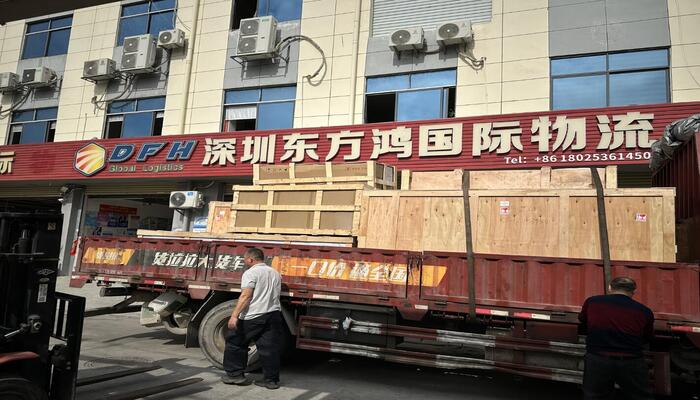
Absolutely. At DFH Logistics, we specialize in ocean freight shipping from China to destinations around the world. Whether you’re shipping furniture to the U.S., industrial parts to Europe, or consolidated goods to Amazon FBA—our services include:
- Pickup from suppliers
- Warehousing and free consolidation
- FCL and LCL sea freight
- Export declaration
- Import customs clearance
- DDP shipping with duties and tax included
- Door-to-door delivery
We’ve helped over 20,000 importers ship reliably, affordably, and hassle-free. Let us do the same for you.
Conclusion
Choosing a reliable ocean freight shipping provider isn’t just a logistics decision—it’s a strategic move for your business. The right partner helps you avoid delays, reduce hidden costs, simplify customs procedures, and keep your supply chain running smoothly.
As a co-founder of DFH Logistics, I’ve seen firsthand how the right freight partner can empower importers—from small e-commerce sellers to large-scale manufacturers. Our team has supported over 20,000 clients with tailored solutions, clear communication, and dependable delivery.
Whether you’re shipping a few pallets or multiple containers, remember to:
- Ask the right questions
- Compare service scope, not just price
- Verify the provider’s credentials
- Trust your instincts when something feels off
If you’re ready to simplify your ocean freight shipping from China with a reliable, experienced partner—contact DFH Logistics today. We’re here to support your business at every step of the journey.
Looking for more guidance?
Check out our guide on how to choose a freight forwarder in China.
Or read our breakdown of FCL vs LCL shipping to make the right decision for your cargo.

